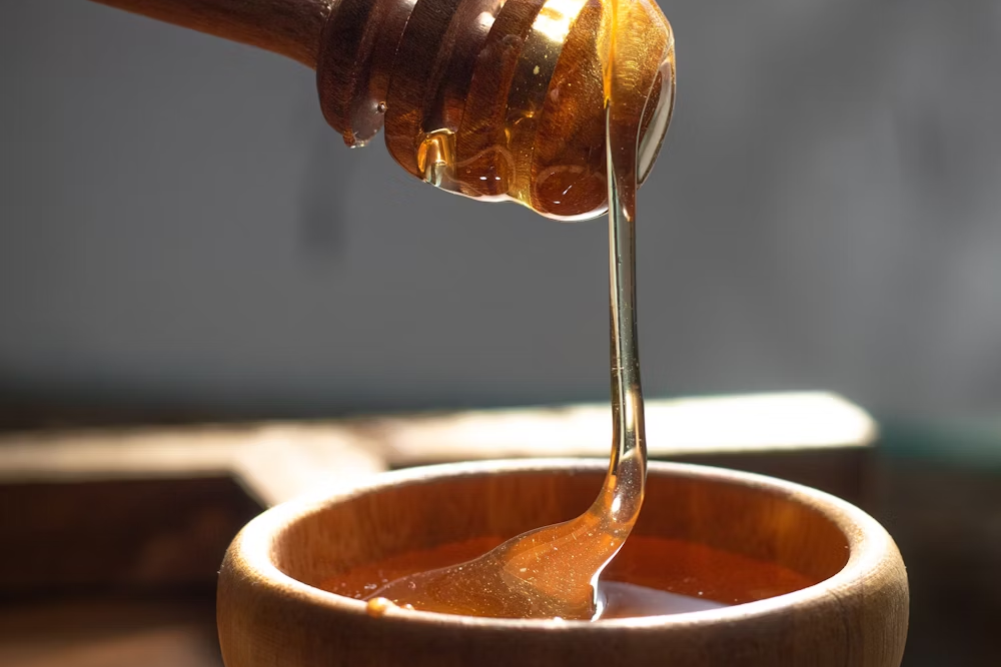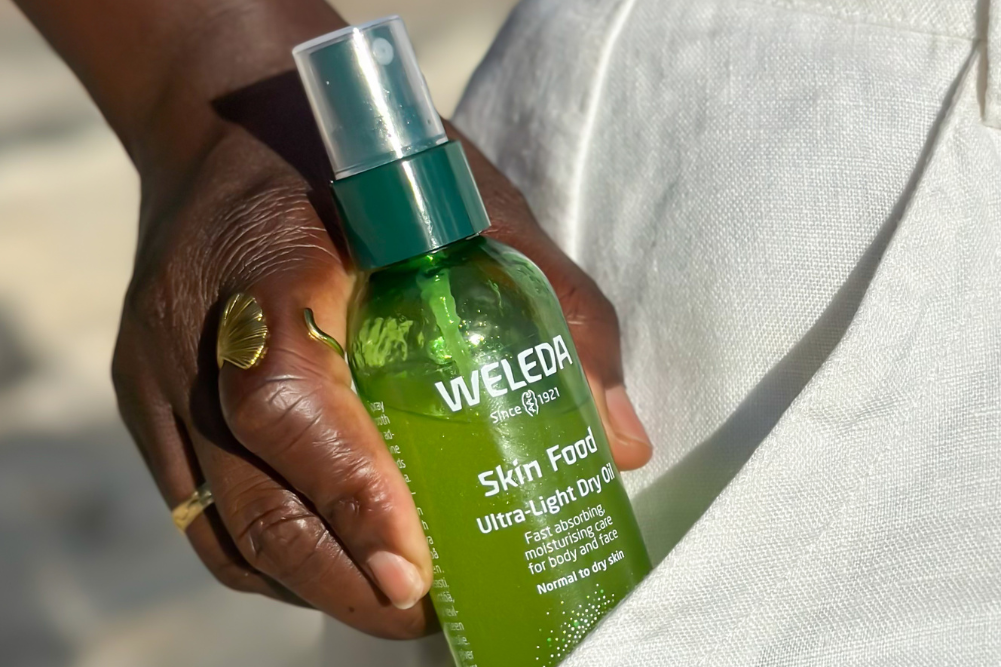How to keep your lips luscious and healthy
Your lips are an important part of your body. They play a vital role in speech and pronunciation. You use them to eat and drink, blow out candles and suck through a straw. Whistling and playing certain musical instruments would be impossible without them. Lips are made up of a large number of nerve endings you use as part of your sense of touch to identify hot and cold. Your lips are also one of the most sensual parts of the body — a special sensory organ used for kissing as well as playing a role in sexual attraction and beauty.
The health of your lips can often be neglected. Dry and cracked lips can signify a bigger picture of our inner health; they can suggest a nutritional deficiency, dehydration or a medical condition like eczema. Lip issues can also be related to allergies or be a side-effect of certain medications such as Roaccutane (acne treatment).
Dry & chapped lips
Your lips are particularly vulnerable to becoming dry and chapped as they don’t contain sweat glands like your skin, so they lack a protective layer of oils to help keep them moist and protected from the elements and saliva.
Cracked, dry lips can be sore and annoying but they can also become extremely painful and bleed, which can increase your risk of infection. The skin on your lips is only thin, made up of three to five layers of skin, compared to the skin on our face, which contains 16 layers. This is why your lips can bleed so easily when they become dry and chapped.
Nutritional deficiencies
Persistent cracking at the corners of the mouth is characteristic of a condition called angular stomatitis — a sign of a B vitamin deficiency, in particular B2, B6 and folic acid. Angular stomatitis can be a very painful condition where the skin can split and bleed at the corners of the mouth, which can lead to small ulcers.
Supplementing with a good-quality B-complex vitamin as well as increasing foods rich in Bs is an important way to treat angular stomatitis. B vitamins are readily found in dark green leafy vegetables, dairy foods, poultry, meat, fish, legumes and wholegrains.
The skin on your lips is only thin, made up of three to five layers of skin, compared to the skin on our face which contains 16 layers. This is why your lips can bleed so easily when they become dry and chapped.
Angular stomatitis is also a sign of iron deficiency. Boost your iron intake by including more iron-rich foods in your diet such as red meat, fish, green leafy vegetables, lentils and seaweeds. Taking an iron supplement made from organic chelated iron at a dosage of around 10–20mg daily is also recommended. If you suspect that you are low in iron, have your iron levels checked by your doctor so you can adjust your supplement dosage accordingly. Spirulina is also an excellent source of iron. Try adding 1 tsp of spirulina powder to smoothies and vegie juices.
If you are not getting enough healthy, unsaturated fats in your diet, you can suffer from dry and cracked lips. Oily fish such as salmon and trout, cold-pressed flaxseed and olive oil, chia seeds, nuts and avocado are all fantastic sources of beneficial fats that will help keep your lips soft and supple. Taking a good-quality fish oil supplement, around 2–3g a day, is also beneficial.
Keep well hydrated
By keeping your body well hydrated you will also help keep your lips moist. Aim to drink at least two litres of water daily. Dry and chapped lips are one of the signs of dehydration parents look out for in toddlers.
Environmental assaults
Your lips are super sensitive to the elements. Being exposed to the wind, cold, sun and snow can play havoc with your lips as they lack those protective natural oils. In summer, we often forget to apply sunscreen to our lips when we are busily lathering up the rest of our body. Wearing sunscreen and a wide-brimmed hat when you are out in the sun is a great way to help prevent your lips from getting sunburnt.
Air conditioners and central heating create a dry atmosphere indoors, which can also dry out your lips. Using a humidifier in your home or office can help. If you do a lot of long-haul flights, this too can leave your lips feeling dry and uncomfortable.
Allergies
Allergies are another factor to consider when investigating the possible causes of your dry lips. A blocked nose associated with hay fever can turn you into a mouth breather and that will leave your mouth and lips feeling dry. Also look at what toothpaste or mouthwash you use, or the type of lipstick or lip balm you are applying daily — you may be reacting to one of them.
Do you lick your lips?
If you are in the habit of licking your lips, resist the urge! Saliva is very drying for lips and will only make your dry chapped lips worse.
Lip balm
Lip balm provides a protective layer that you would normally get from your skin’s natural oils. Using a lip balm helps lock in moisture and protects your lips from the sun and wind.
If you are not getting enough healthy, unsaturated fats in your diet, you can suffer from dry and cracked lips.
Not all lip balms are created equal. Avoid using commercial lip balms that contain chemicals and mineral oils. You are much better off using a natural product that will absorb into your lips and moisturise them. The “goo” from many commercial lip balms merely sits on the surface of the lips, giving the feeling of moist soft lips without actually being absorbed.
Mineral oils and petroleum jelly are petroleum-based ingredients found in many lip balms. These cheap manufactured oils are not recommended as they coat the lips, inhibiting their ability to “breathe” and absorb moisture or nutrients. You end up becoming reliant on these types of lip balms to keep your lips feeling moisturised. Mineral oils and petroleum jelly can also contain cancer-causing substances.
Lip balms with synthetic fragrances and colours should also be avoided.
You should always choose a 100 per cent natural lip balm made from lip-nourishing oils and butters like coconut oil, shea and cacao butter that will absorb into your lips, allow them to breathe and help keep them hydrated and protected. Or, you could make your own.
DIY lip balm
It’s easy and cheaper to make your own natural lip balm at home.
The best way to make a great lip balm is to start off with a base of either shea, cacao or mango butter, which will give your balm a lovely creamy texture. You then need to add some nourishing oils like coconut, jojoba or sweet almond.
Vitamin E, rose hip and calendula oils are also lovely healing oils that can give you balm an added boost.
Coconut oil is solid at room temperature; however, if you want your balm to stay hard when the weather is warm, you will need to add some beeswax. This will also help protect your lips.
If you want your lip balm to smell great, try adding some vanilla extract or an essential oil like peppermint. Cacao butter also has a delicious chocolaty aroma. To give your balm a lovely pink-red tint, add some beetroot powder.
Peppermint Lip Balm
=R1=
Natural lip balm ingredients
Beeswax
Honeybees produce a natural wax called beeswax, which is secreted inside of honeycomb. Beeswax has a lovely mild honey scent and is well known for its ability to calm and soothe the skin. Beeswax is commonly used in lip balms as it forms a barrier on your lips, which provides protection against irritants and environmental assaults. Beeswax still allows your lips to breathe, unlike suffocating petroleum-based products. Beeswax is very healing for the lips as it contains vitamin A, which promotes repair, making it ideal for preventing and healing chapped lips.
Cocoa butter
Cocoa butter is the cream-coloured fat from cocoa (chocolate) beans, used for centuries in Africa for its moisturising and healing properties. Cocoa butter has a gorgeous delicate chocolaty scent and can be used interchangeably with shea butter in lip balm recipes. Cocoa butter is highly moisturising, which helps keep the lips soft and kissable.
Shea butter
Shea butter is extracted from the nut of the African shea tree. Shea butter is rich and creamy and very hydrating and soothing for the lips. It is ideal for healing and preventing cracked and dry lips.
Coconut oil
Coconut oil is made from the flesh of the coconut and is a fabulous moisturiser for the lips, is easily absorbed and is particularly nourishing for dry and cracked lips.
Mango butter
Mango butter, which is extracted from the de-shelled kernels of the mango tree, is a lovely soft butter with a delightful sweet smell. It has a very similar consistency to shea and cocoa butters and can be used interchangeably in lip balm recipes. Mango butter however contains higher concentrations of fatty acids, which makes it an even more effective moisturiser for your lips.
Rose hip oil
Rose hip oil, made from the fruit of the rose bush, is a popular addition to skin care products because it rehydrates and moisturises the skin. This hydrating oil is an excellent source of polyunsaturated fatty acids, which help promote soft and supple lips. Rose hip oil is also beneficial for reducing or preventing scaring associated with cold sores.
Vitamin E
This important antioxidant vitamin is useful for soothing dry and chapped lips, especially after sun exposure. Vitamin E can also be used topically for preventing scaring associated with cold sores.
Calendula
Calendula essential oil is made from the bright orange pot marigold plant (Calendula officinalis). Calendula oil has antiseptic properties and exceptional healing powers, helping to heal sores, cracks or ulcers on the lips. Calendula oil is extremely beneficial for healing minor cuts and burns including sunburns and for treating chapped and dry lips.
Cold sores
Small blisters on or around the lips are characteristic of the herpes simplex virus type 1, or cold sores. One of the commonest lip problems, cold sores usually start as a tingling, burning or itching sensation then a small crop of red bumps followed by fluid-filled blisters, which eventually weep and dry up over a week or so.
Cold sores are highly contagious, especially during the blistering stage. The virus can be passed from skin-to-skin contact or from saliva even when blisters are not present. This is why it’s not a good idea to share water bottles, cups and lip gloss with anyone at any time if it can be avoided.
Once you are infected once, the virus unfortunately stays in your body and leaves you susceptible to cold sores for life. The herpes virus lives in the spinal cord and travels along certain nerve paths, resulting in breakouts in that area on the skin. It can remain inactive for months or even years until reactivated. The good news for sufferers is that outbreaks tend to become milder and less frequent with age. The most common triggers for cold sore outbreaks are stress, becoming sick or rundown, not getting enough sleep, dry and chapped lips, and too much sun exposure. Women tend to get more breakouts around the time of menstruation.
Around 65–90 per cent of adults around the globe have herpes simplex antibodies but only a third of infected people ever experience cold sores. If you are one of those unlucky people, don’t despair — there are some simple natural ways to prevent annoying outbreaks.
Taking a vitamin C supplement and increasing vitamin C-rich foods (citrus fruits, kiwi, broccoli, berries and parsley) is beneficial. Vitamin C is a powerful antioxidant that helps boost immunity and has antiviral activity. Take around 2–3g of vitamin C daily.
Zinc is another important mineral used to combat cold sores. It enhances immunity and reduces the frequency and severity of herpes outbreaks. It helps inhibit the ability of the herpes virus to reproduce itself. Take around 45–50mg of zinc daily and increase zinc-rich foods in the diet such as fish, dairy and eggs (yolk).
The amino acid arginine promotes cold sore breakouts, so an important step to prevent outbreaks is to reduce foods that contain high levels of arginine such as nuts, seeds, oats, turkey, chocolate, garlic and whole wheat. On the other hand, increasing foods rich in the amino acid lysine will help prevent cold sore outbreaks. Good sources of lysine include yoghurt, cheese, milk, papaya, mangoes, apples, apricots and salmon. Supplementing with lysine is a key part of managing cold sores successfully. Take around 1250mg of lysine daily, as a maintenance dose, and increase to 1875–2500mg per day if you experience an outbreak.
Not all lip balms are created equal. Avoid using commercial lip balms that contain chemicals and mineral oils. You are much better off using a natural product that will absorb into your lips and moisturise them.
Work at strengthening your immune system by consuming immune-boosting foods such as spirulina, echinacea tea, shiitake mushrooms and citrus fruits. Herbalists often recommend herbs such as astragalus, andrographis and olive leaf to prevent cold sore breakout.
There are also some great homeopathic remedies that can help prevent cold sores. If you take the remedy Nat Mur during the early tingling stage, you can help prevent a breakout. Other remedies indicated for cold sores include Apis (when they look red and swollen); graphite (for eruptions that are oozing with crusting skin); Hepar sulph (when very sensitive to touch); and Rhus tox (for eruptions that are red, swollen, burning and itching).
Too much caffeine can overstimulate the nervous system and increase the likelihood of an outbreak. Limiting coffee, black tea, sodas, energy drinks and chocolate is recommended. Opt for caffeine-free herbal teas such as chamomile, licorice, peppermint, ginger, lemongrass and rose hip instead.








